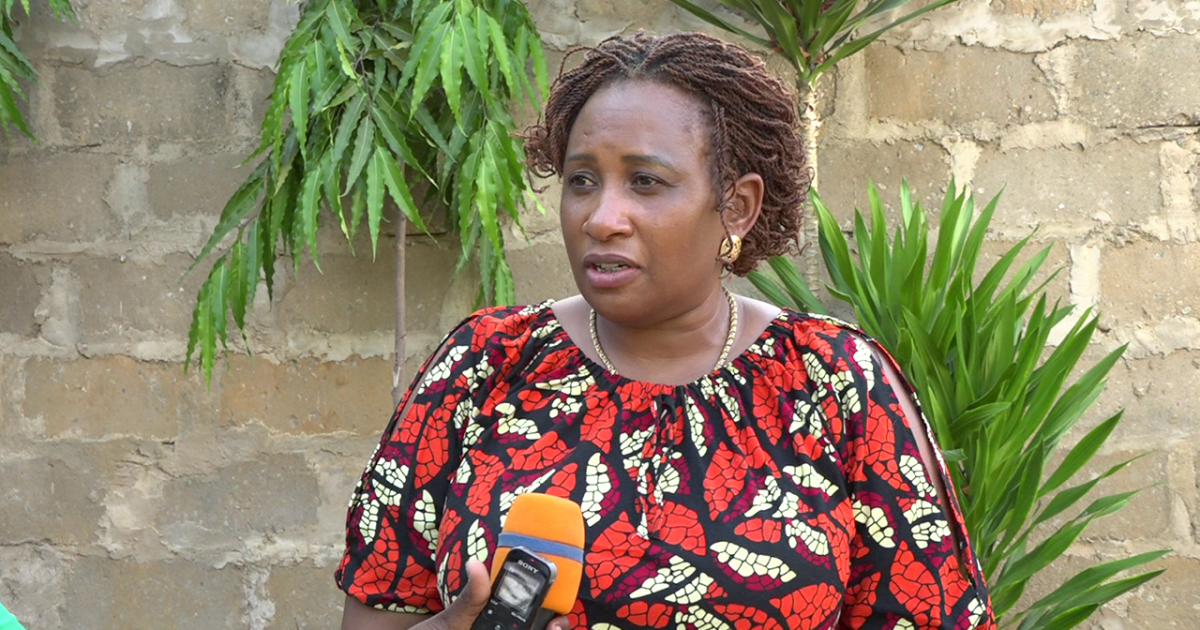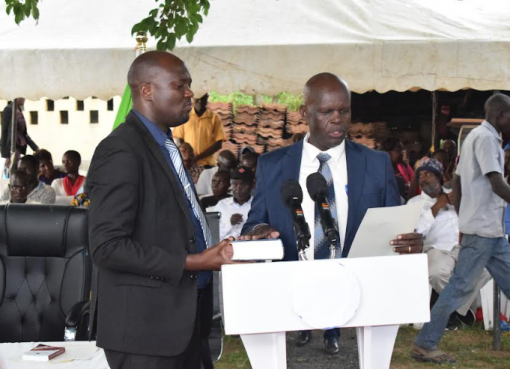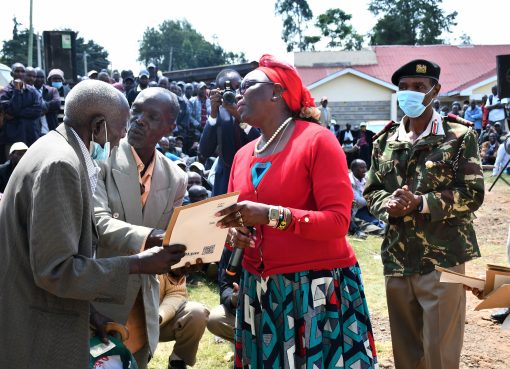As the world marks World Aids Day, the National Aid Control Council is calling on all Kenyans to actively take part in the fight against the global epidemic and stop stigmatizing AIDS victims.
NACC Chief Executive Officer (CEO) Dr. Ruth Laibon-Masha, has lamented that stigmatization has continued fueling the pandemic in the country, 37 years after the first case was detected in Kenya.
“The AIDS epidemic is fueled by stigma, which has been persistent. We are 37 years old; we have talked about how it is not transmitted but you will find that in some of our communities, people even stop sharing toilets with AIDS sufferers,” she said.
Dr. Masha said this during a tour of The Omari Project, a drug addicts’ rehabilitation centre based in Malindi Town where she promised to work with the organization to reach drug addicts who are not easy to reach because of criminalization of drug abuse.
“The message to all Kenyans is that it is not one person who is going to end AIDS in Kenya. It will take all of us to stop shying away from the subject. We must speak about HIV, we must speak about sex, we must also talk about protection,” she said.
She added, “If we join together, we will end AIDS. If we continue dividing ourselves into different factions, this epidemic will continue to be with us.”
Dr. Masha said stigma was high especially among marginalized communities and some religious organizations and called on Kenyans to realize that HIV/AIDS was a disease that requires treatment.
“If you stigmatize people, then you lose focus on the fact that it is also through the people living with HIV that more Kenyans have not been infected. This is because many victims came out and shared their stories and offered messages of prevention so that more people would not get HIV,” she said.
Dr. Masha said currently there are about 1.5 million Kenyans living with HIV, with close to 1.2 million of them on anti-retroviral (ARV) treatment.
She said commercial sex workers, men who have sex with men and people who inject narcotic drugs were the most vulnerable to contracting HIV because they have a higher prevalence rate compared to the general population.
“Some of the challenges we’ve had include certain populations who are vulnerable to HIV such as commercial sex workers, men who have sex with men and people who inject drugs because they have higher prevalence compared to the general population,” she said.
Masha said the prevalence rate among people who inject drugs is around 18.1 per cent, which she noted was more than four times the national average of around 4.5 per cent noting the prevalence was high because drug abuse was criminalized and it was difficult for them to be reached for help and other services.
She however said NACC was focused on following the constitution which requires that every Kenyan get access to health, and that was why it was working with all populations regardless of whether they are in conflict with the law or not.
The Doctor said that among those who inject drugs, women had a higher prevalence compared to their male counterparts at around 33 per cent, apart from the fact that many of them (women) venture into commercial sex to get money to buy drugs while many others suffer sexual violence.
“NACC is working with nongovernmental organizations such as the Omari Project which work with such groups that fear coming out because they already know they are doing something in conflict with the law,” she said.
She said the government of Kenya had a programme known as Opioid Substitution Therapy (the methadone programme) that deals with medical treatment to help somebody to stop the addiction to injectable drugs, also known as harm reduction.
“This harm comes in three ways. There is HIV, blood transmittable diseases such as Hepatitis B and most importantly, the lack of social wellness because most of them are always drunk when they are not on the methadone programme,” she said.
Mr. Hamit Mudaris, the Coordinator of the Omari Project, said the organization was assisting 2,125 young drug addicts through a programme funded by the Global Fund through the Kenya Red Cross Society.
“In this programme, we are providing syringes and needles so that they may stop sharing the facilities and thus reduce HIV transmission among them. We are also giving them condoms to reduce the spread of the disease in our area,” he said.
He said the organization was also providing drug addicts with counselling as well as tuberculosis drugs and ARVs and drugs that prevent Hepatitis B that affect the liver.
By Emmanuel Masha





